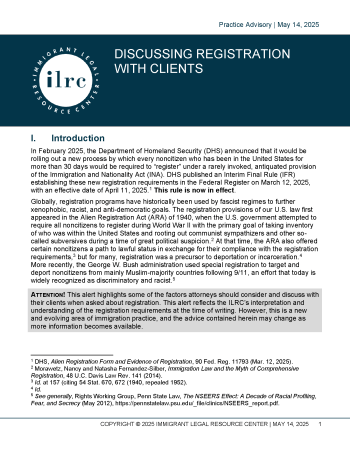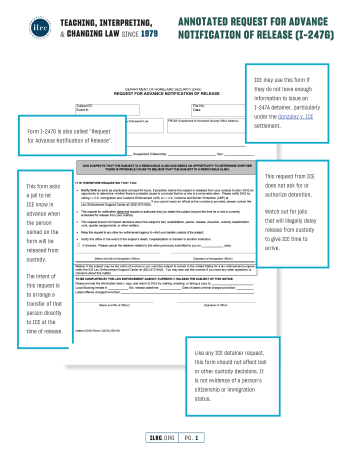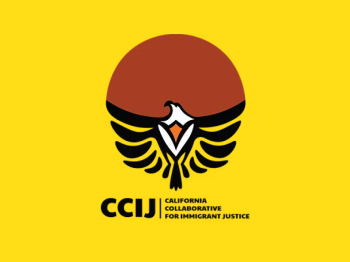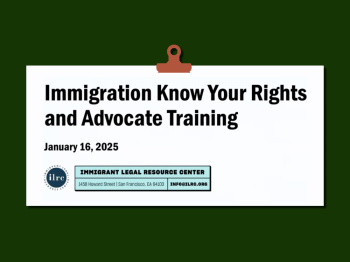
On April 11, 2025, the new Form G-325R took effect as a general tool to register all previously unregistered noncitizens under an antiquated and rarely invoked provision of the Immigration & Nationality Act, with criminal penalties for willful failure to register. This advisory was written to assist attorneys in discussing registration and the new Form G-325R with clients, including screening for prior registration and assessing the potential consequences of registering or not registering, so that individuals can make informed decisions about how to proceed in light of this new rule.

ICE’s form for requesting advance notice when someone will be released from custody. ICE uses this when they lack probable cause to issue a detainer, but want the jail to transfer the person to ICE custody anyway.
Know Your Rights
Know Your Rights
Advocates and community members can work together to fight messages of fear and panic by helping community members learn about their rights and how to protect themselves from ICE. The Immigrant Legal Resource Center has created a variety of materials to educate the community and prepare individuals for possible encounters with immigration authorities.
Additional resources (some related to Know Your Rights) can be found on our Community Resources page.
Tools to Assert Your Rights
How to Prepare for Emergencies

A Family Preparedness Plan and Orientation Videos
It is critical for immigrant families to think ahead and set more concrete plans for immigration emergencies that can arise.
Resources for Advocates
This resource compares immigration enforcement in Texas before Trump’s inauguration on January 20, 2025 with the policies Trump has instituted since he has taken office. Our analysis shows that Governor Abbott’s immigration enforcement policies led the way for Trump’s actions. Texas has served as experimentation grounds for hateful and sweeping immigration enforcement policies which were quickly adopted by Trump 2.0 for the national level and have also infected other states who have enacted Texas copycat laws and policies. Our analysis below is a mere snapshot of the Texas and federal immigration enforcement policies that are currently in place.







